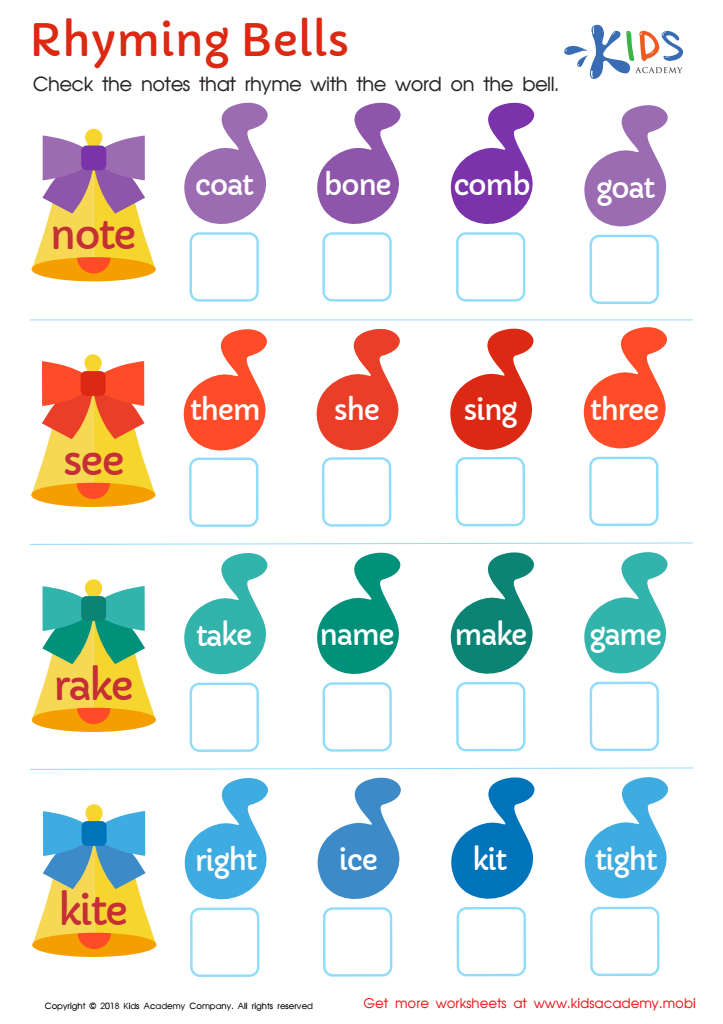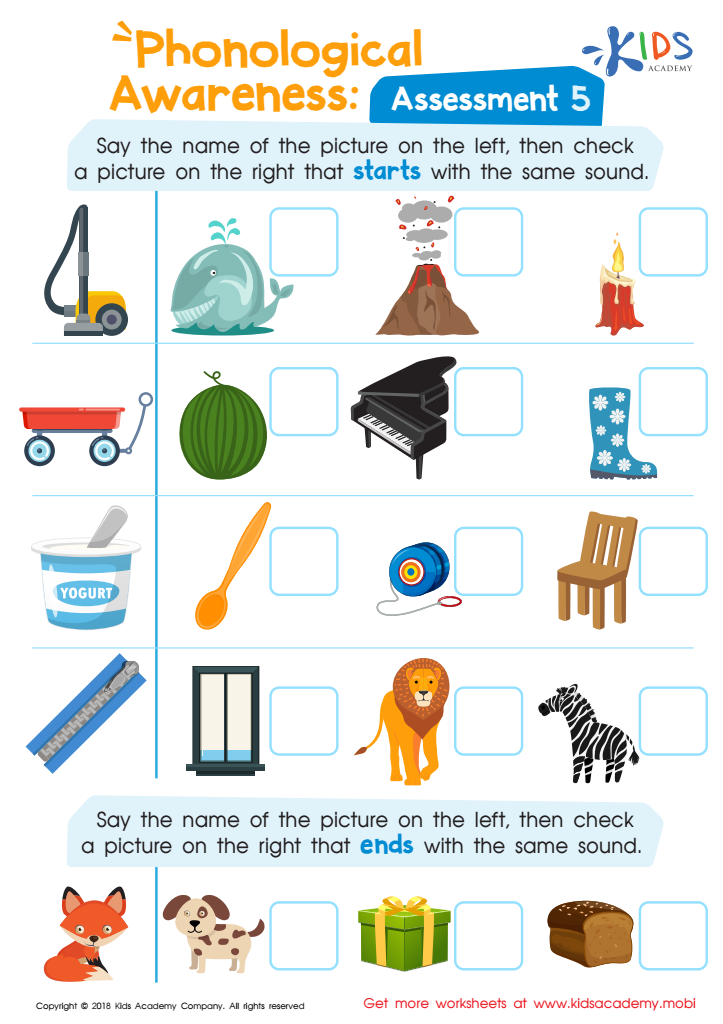Rhyming skills development Phonics Worksheets for Ages 4-6
5 filtered results
-
From - To
Boost your child's phonics prowess with our engaging Rhyming Skills Development Phonics Worksheets, tailored for ages 4-6. These expertly designed printables, offered by Kids Academy, make learning fun and effective. Through a variety of playful rhyme recognition and matching exercises, children build critical early literacy skills. Perfect for parents and teachers, our worksheets align with educational standards, ensuring your young learners develop the phonemic awareness necessary for reading success. Introduce rhyme patterns and sounds while fostering a love for language with these interactive, colorful activities. Start your child's phonics journey today with our trusted resources.


Rhyming Words Rhyming Worksheet


Rhyming Bells Worksheet


First Words: Picture Rhymes Worksheet


Phonological Awareness: Assessment 5 Worksheet
Rhyming skills and phonics are fundamental building blocks in early literacy development for children ages 4-6. Rhyming helps kids recognize patterns in language, which boosts their phonemic awareness—the ability to hear, identify, and manipulate individual sounds in spoken words. This skill is critical because strong phonemic awareness is closely linked to successful reading and spelling abilities. Rhyming activities, like songs and poems, make learning fun, engaging children through playful repetition and rhythm, fostering a love for language.
Phonics instruction goes hand-in-hand with these skills by teaching children the relationship between letters and sounds. Understanding phonics enables kids to decode new words, paving the way for fluent reading. When children grasp how sounds correspond to letters, they start to read words by sight and phonetically, thus building their vocabulary and comprehension skills.
Early mastery in rhyming and phonics also boosts confidence. Children who feel competent and successful in their reading endeavors are more likely to develop a lifelong love for reading, crucial for academic success across all subjects. Therefore, parents and teachers should invest time in activities that nurture these skills, laying a strong, joyful foundation for future learning.
 Assign to My Students
Assign to My Students




















